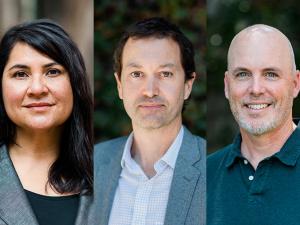

Research Expertise and Interest
immunology, cell biology, infectious disease, innate immunity, Microbiome, autoimmune diseases
Research Description
Greg Barton's training and expertise are in the areas of immunology, microbiology, cell biology, and mouse genetics. Research in his lab focuses on microbial detection by the innate immune system and how innate immunity links to adaptive immunity. As a graduate student in Alexander Rudensky’s lab he developed new transgenic mouse strains to address the importance of MHC-bound self-peptides in T cell selection (Barton and Rudensky Science 1999; Barton et al PNAS 2002). Through this training he gained expertise in cellular immunology, T cell biology, and antigen presentation. For his postdoctoral training he worked in Ruslan Medzhitov’s lab, where his work focused on innate immunity. He carried out the first studies demonstrating the importance of Toll-like receptors (TLRs) in controlling induction of adaptive immunity (Schnare*, Barton* et al Nature Immunology 2001). He also began studying how TLRs with specificity for nucleic acids avoid responses to self DNA and RNA (Barton et al Nature Immunology 2006). Both of these topics continue to interest him and his group at Berkeley.
Professor Barton's lab is known for, among other things, its discoveries of new mechanisms regulating self versus non-self discrimination by TLRs. His research team showed that nucleic acid sensing TLRs require ectodomain processing, which reinforces compartmentalized ligand recognition (Ewald et al Nature 2008; Ewald et al JEM 2011; Mouchess et al Immunity 2011). His group has also characterized key aspects of TLR trafficking which can have profound impacts on receptor function (Lee et al eLIFE 2013). Another area of study focuses on host-microbe interactions, where the lab's work has uncovered key principles regulating interactions with pathogens (Arpaia et al Cell 2011; Sivick et al Cell Host Microbe 2014) and with the microbiota (Koch et al Cell 2016; Ansaldo et al Science 2019). Professor Barton's ongoing work continues to explore mechanisms of self versus non-self discrimination, host-microbe interactions, and the mechanisms by which innate immunity regulates adaptive immunity.

